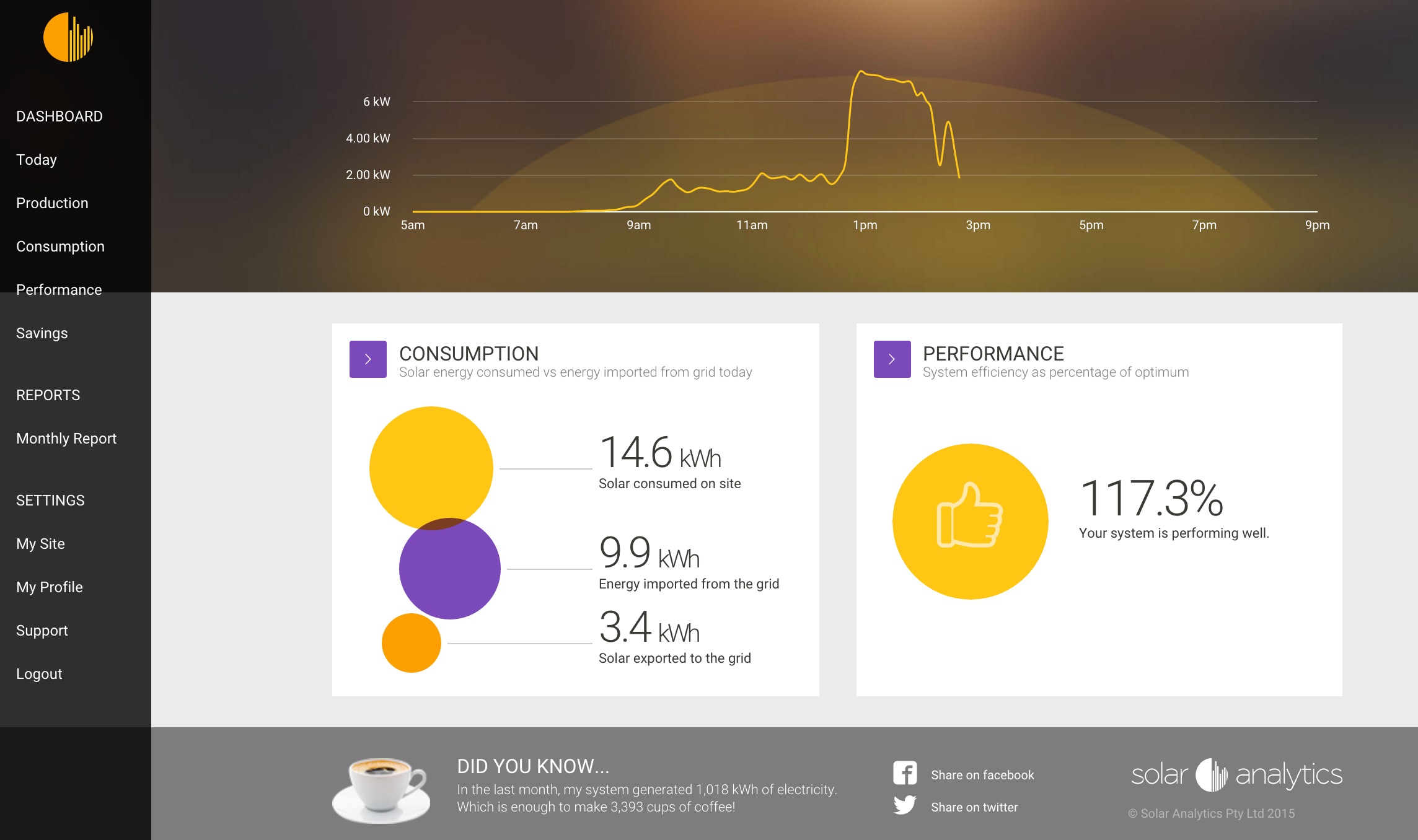How to measure the efficiency of your solar panels.
A guest blog by Zarah Copeland
We have just said a sad good bye to our former Project Manager, Marianna Verlage. Marianna has achieved a lot at her time with Street Coolers and will take a lot of this back with her to the US, and hopefully she will achieve many more great things back home.
However, I’d like to take this opportunity to introduce myself as the newest Project Manager!
I’ll be taking over Marianna’s hard work as well as taking on a new direction with Street Coolers. One of the first things we will be looking in to is to get some quantitative results on just how effective the Solar Panels are within our focus area.
Ausgrid’s data from monitoring 8000 Solar PV systems, estimates that 51.8% solar panels are not performing to capacity.
Accordingly, we are about to embark on the monitoring of two Solar PV panel systems, the first being the “Inspire Solar” solar panels installed in the Athena School, with a Solar Analytics + Wattwatchers combined monitoring system installed on 30th of March this year. I’d like to thank Fiona Milne and the students and staff and Athena for their co-operation and enthusiasm for the monitoring project.
The solar panels on Athena school's roof
Later we will install the same hardware to monitor solar panels installed by Offgrid Solar in a newly constructed off-the-grid home. Both sites are located in the same city block in Newtown, NSW.
We will be monitoring with Solar Analytics Hardware installed in conjunction with Wattwatchers. This has already been noted in a blog on 22 February, which has more information on monitoring your solar panels.
The Solar Analytics / Wattwatcher device at the top right with aerial
According to www.solarmarket.com.au every one degree in temperature increase causes loss in efficiency in your solar systems. Meaning that they will produce around 20% less energy than their peak on a forty degree day! This is just one more reason why Street Coolers is actively implementing solutions to cool our cities. Go to www.streetcoolers.com.au to see what we are doing to solve this in Sydney and Australian cities.
Preliminary results can be seen above, as provided through the online dashboard on the Solar Analytics website. We are waiting on more data before we start analysis for potential for money savings and panel efficiency.
If you want to monitor your existing – or future – solar panels, you have the option of using Solar Analytics’ Smart Monitor found here.
According to Zachary Shahan, who writes for Clean Technica, currently the top solar cells operate at an efficiency of between 32.6-46%, but are often not used in residential applications. With this in mind, we will be comparing the efficiency of the school's solar panels, with consideration into replacement in the future after having considered the cost benefit relationship.
If you are considering converting to solar panels you may want to visit this site and read the article below to find the top brands as well as some other tips and tricks as advised in the article. It also point you in the right direction for getting quotes as well as calculating the savings that you can achieve relative to your house – or office- location.
Be on the hunt for any possible rebates.
Check the website for solar rebates as a part of the Commonwealth Government’s Small Scale Renewable Energy Scheme which can help reduce the upfront costs of purchasing and installing solar panels.
Another thing you may want to consider is a leasing option. This may be a cheaper option for you, and you will always have the latest technology in solar cells, batteries and accessories depending on the lease you choose. Solar Choice is just one company that gives this option, their website can be found here.
The most important thing to consider is that there is almost always an option to do yourself and your planet a favour and go green! Watch this space for further results of our investigation!
One big tip born of experience; if you choose a solar installer who mostly does off-grid work you are more likely to get the best solar panels because when people live off-grid they know very quickly if the panels are not working.
There's a clear financial incentive for off-grid installers to use the highest quality panels and to provide high quality installation; otherwise their clients will be calling them to come back and fix the system.
Thanks for reading!
Zarah




